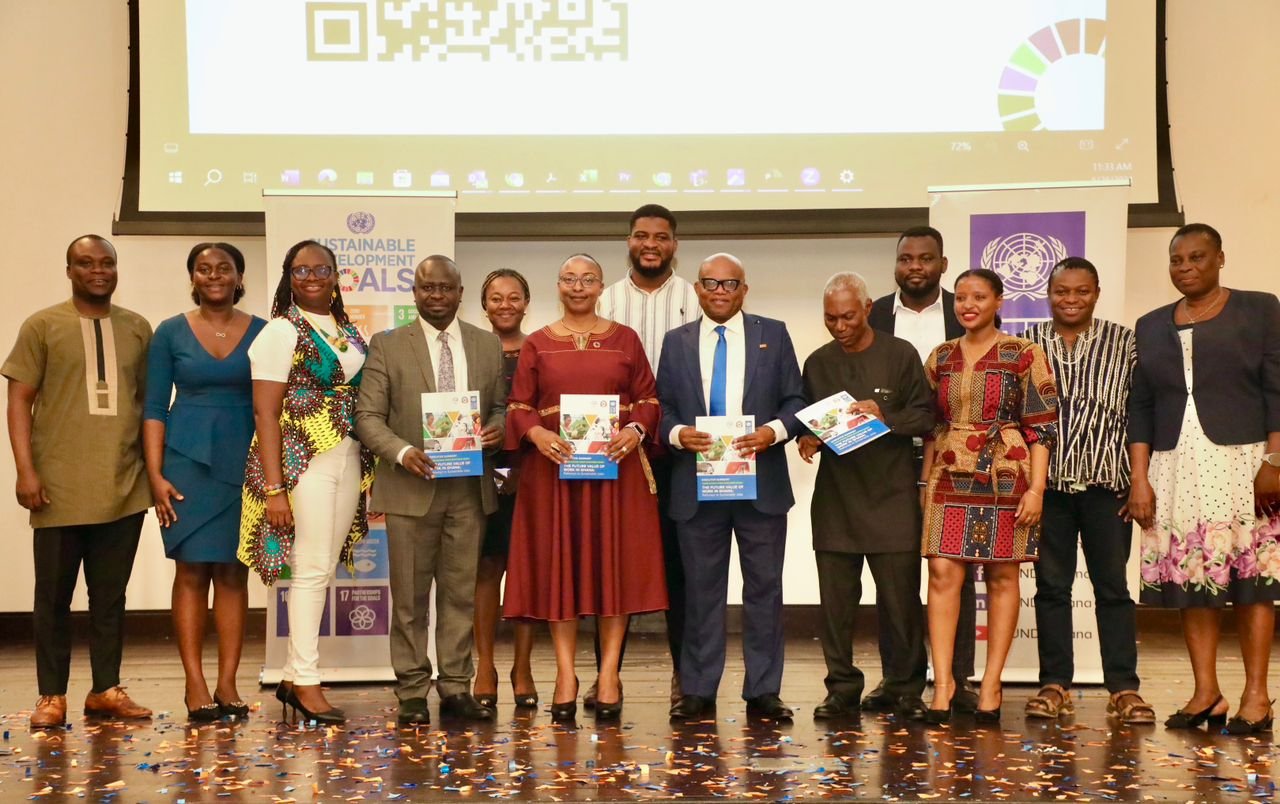The report being launched
Latest Ghana Human Development Report 2023 (GNHDR) reveals that Ghana’s workforce is grappling with meaningful employment opportunities. Despite high economic growth over the past decade, the informal sector accounts for 75% of the workforce, and youth unemployment and underemployment remain a major challenge.
The findings from the report released by the United Nations Development Programme (UNDP), in partnership with the Ghana Statistical Service (GSS) and the National Development Planning Commission (NDPC) indicates that young people aged 15-24 are disproportionately impacted by unemployment, with a significant 65% experiencing joblessness.
This trend has implications for the country’s long-term development goals and human development, highlighting the need for targeted interventions to address youth unemployment and promote inclusive economic growth.
The report, themed “The Future Value of Work in Ghana: Pathways to Sustainable Jobs”, highlights the need for Ghana to bridge the gap between current opportunities and the future of work through strategic investment in both human capital and infrastructure to create a conducive environment for sustainable jobs for all.
“For Ghana to achieve its long-term development goals and reduce unemployment, it is crucial to invest in both building human capital as well as enhancing access to technology and digital infrastructure for all. This will create a conducive environment for sustainable job creation and economic growth”, stated Angela Lusigi, UNDP Resident Representative in Ghana”, stated Angela Lusigi, UNDP Resident Representative in Ghana.
The report emphasizes the interconnectedness of work and human development, calling for a reimagining of academic programs to include science, technology, engineering, arts and mathematics (STEM/STEAM) education and entrepreneurial training, preparing the youth for future job markets.
“The findings from the report provides crucial insights into the nexus between work and human development, urging stakeholders to adopt policies that foster inclusive growth and sustainable job creation”, Prof. Samuel Kobina Annim, the Government Statistician.
The report also recommends simplifying regulations and providing targeted training to formalize the informal sector, creating more stable job opportunities.
Furthermore, efficient and reliable infrastructure in energy, transport, water, ICT, and housing is fundamental for the future of work.
“By investing in infrastructure and promoting entrepreneurship, Ghana can harness the potential of its youth and informal sector, driving socio-economic transformation and job creation”, noted Kodjo Esseim Mensah-Abrampa, Director-General, NDPC.
National consensus on long-term development plans is crucial for sustained progress. As Ghana approaches the endline for the Sustainable Development Goals (SDGs) by 2030 and its centenary of independence in 2057, the 2023 Ghana Human Development Report calls for a strategic focus on job creation, infrastructure investment, and educational reforms. By addressing these critical areas, Ghana can pave the way for a future where every citizen enjoys the benefits of decent work and improved living standards.
The report’s findings and recommendations offer a roadmap for Ghana’s socio-economic transformation, and its implementation will require the collective effort of all stakeholders, including the government, private sector, civil society, and individuals.








